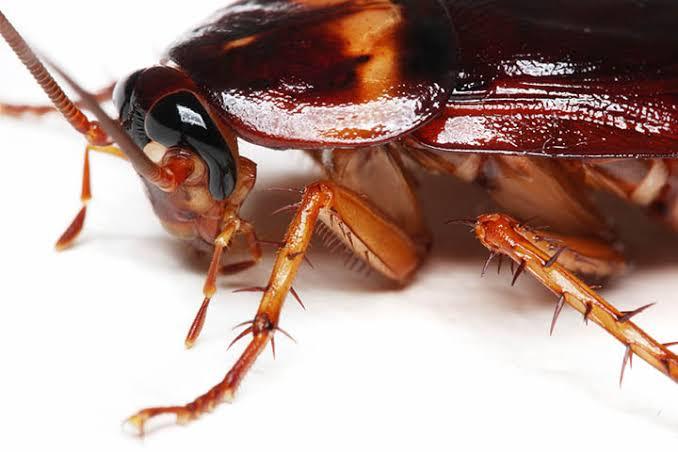Cockroach
Even after having its head cut off, a cockroach can still live for weeks.
To understand why cockroaches -and many other insects- can survive decapitation, it helps to understand why humans cannot, explains physiologist and biochemist Joseph Kunkel at the University of Massachusetts Amherst, who studies cockroach development. First off, decapitation in humans results in blood loss and a drop in blood pressure, hampering oxygen and nutrition transport to vital tissues. In addition, humans breathe through their mouth or nose, and the brain controls that critical function so that breathing stops. Moreover, the human body cannot eat without the head, ensuring a swift death from starvation should it survive the other ill effects of head loss.
But cockroaches do not have blood pressure the way people do. "They don't have a huge network of blood vessels like humans or tiny capillaries that you need a lot of pressure to flow blood through," Kunkel says. "They have an open circulatory system, which there's much less pressure in. After you cut their heads off, their necks would often seal off just by clotting," he adds.
Cockroaches are also poikilotherms, or cold-blooded, meaning they need much less food than humans do. "An insect can survive for weeks on a meal they had one day," Kunkel says. "As long as some predator doesn't eat them, they'll just stay quiet and sit around unless they get infected by mold, bacteria, or a virus. Then they're dead."
Source: Ultimate Facts
@https://www.pestworldforkids.org/pest-guide/cockroaches/
Even after having its head cut off, a cockroach can still live for weeks.
To understand why cockroaches -and many other insects- can survive decapitation, it helps to understand why humans cannot, explains physiologist and biochemist Joseph Kunkel at the University of Massachusetts Amherst, who studies cockroach development. First off, decapitation in humans results in blood loss and a drop in blood pressure, hampering oxygen and nutrition transport to vital tissues. In addition, humans breathe through their mouth or nose, and the brain controls that critical function so that breathing stops. Moreover, the human body cannot eat without the head, ensuring a swift death from starvation should it survive the other ill effects of head loss.
But cockroaches do not have blood pressure the way people do. "They don't have a huge network of blood vessels like humans or tiny capillaries that you need a lot of pressure to flow blood through," Kunkel says. "They have an open circulatory system, which there's much less pressure in. After you cut their heads off, their necks would often seal off just by clotting," he adds.
Cockroaches are also poikilotherms, or cold-blooded, meaning they need much less food than humans do. "An insect can survive for weeks on a meal they had one day," Kunkel says. "As long as some predator doesn't eat them, they'll just stay quiet and sit around unless they get infected by mold, bacteria, or a virus. Then they're dead."
Source: Ultimate Facts
@https://www.pestworldforkids.org/pest-guide/cockroaches/
Cockroach
Even after having its head cut off, a cockroach can still live for weeks.
To understand why cockroaches -and many other insects- can survive decapitation, it helps to understand why humans cannot, explains physiologist and biochemist Joseph Kunkel at the University of Massachusetts Amherst, who studies cockroach development. First off, decapitation in humans results in blood loss and a drop in blood pressure, hampering oxygen and nutrition transport to vital tissues. In addition, humans breathe through their mouth or nose, and the brain controls that critical function so that breathing stops. Moreover, the human body cannot eat without the head, ensuring a swift death from starvation should it survive the other ill effects of head loss.
But cockroaches do not have blood pressure the way people do. "They don't have a huge network of blood vessels like humans or tiny capillaries that you need a lot of pressure to flow blood through," Kunkel says. "They have an open circulatory system, which there's much less pressure in. After you cut their heads off, their necks would often seal off just by clotting," he adds.
Cockroaches are also poikilotherms, or cold-blooded, meaning they need much less food than humans do. "An insect can survive for weeks on a meal they had one day," Kunkel says. "As long as some predator doesn't eat them, they'll just stay quiet and sit around unless they get infected by mold, bacteria, or a virus. Then they're dead."
Source: Ultimate Facts
🖼️@https://www.pestworldforkids.org/pest-guide/cockroaches/




